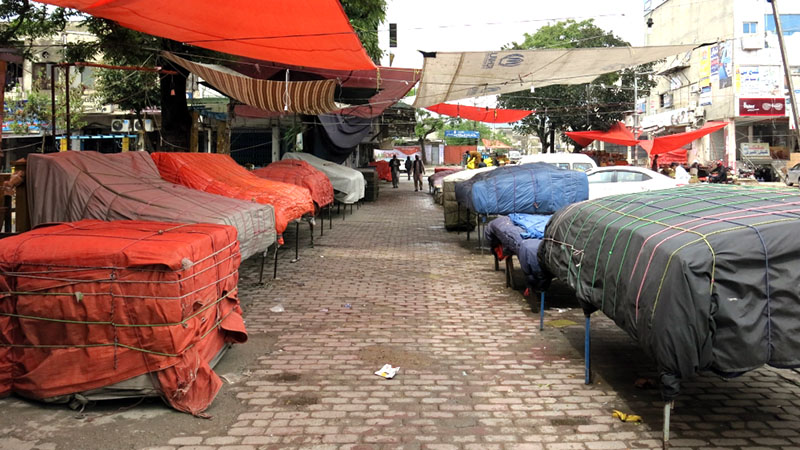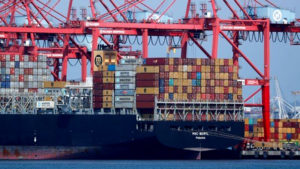Islamabad, Pakistan – Shireen Khan sits by the side of the road in the Pakistani capital Islamabad, in the drizzling rain, hoping someone will drive by and offer him work.
Khan, a daily wage worker, has not earned a rupee in more than two weeks as Pakistan battles an outbreak of the coronavirus that has seen more than 1,000 people infected, forcing a countrywide lockdown.
“I’m only out here out of hunger, I have no other reason,” says the 46-year-old man. “I am a sick man, I had typhoid five or six months ago, and am still suffering.”
Pakistan’s government has imposed varying restrictions across the country, in part, Prime Minister Imran Khan has said, to safeguard the incomes of daily wage workers such as Shireen Khan.
In Islamabad, public gatherings are banned, schools are closed and all shops other than those selling groceries or medicines have been shut down.



Other provinces and regions are following a largely similar model, with Sindh province, which has the highest number of cases – at least 410, enforcing a stricter lockdown with full city shutdowns mandated between 8pm and 8am every night, starting on Wednesday.
“A lockdown is not a curfew,” PM Khan reiterated in a news conference on Tuesday evening. “When you enforce a curfew, what will your poorest segment of society do?”
Shireen Khan, and more than a dozen others who were waiting for work beside him, however, say that the “lockdown” may as well be a curfew, because no one is offering them work.
“A lockdown is necessary [to control the virus outbreak],” he says. “But we need to be taken care of as well.”
Rising number of cases
On Wednesday, Pakistan’s countrywide tally of cases stood at 1,005, with 14 patients having recovered and seven fatalities, according to government data. The number of cases has more than tripled in a week.
Authorities have been scrambling to control the spread of the virus, although they do not yet appear to be at a level that could overwhelm Pakistan’s fragile healthcare system.
On Wednesday, PM Khan reiterated that he has been delaying announcing a countrywide shutdown to safeguard the economic interests of the poorest Pakistanis, who he says need to work to earn a living.
Observers, however, say that work has already dried up with the current level of restrictions.
“The wider concern that a slowdown in economic activity would knock people’s daily wages off, would evaporate the work that daily wagers do, that is already coming to fruition,” says Mosharraf Zaidi, a senior fellow at the Tabadlab policy think-tank.
“Daily wage labourers require sites and opportunities that demand their skills or input. But when there is a lockdown, all economic activity, construction activity, all of those activities have been suspended.”
On Wednesday, however, the government announced it would be disbursing 12,000 rupees ($75) to low-income earners, affecting an estimating 67 million people, as part of a $940m economic stimulus package.




